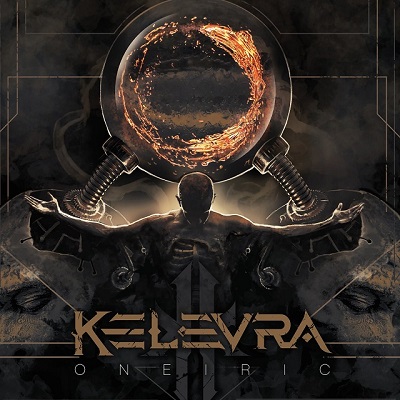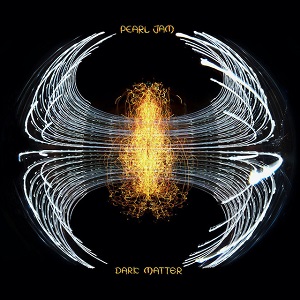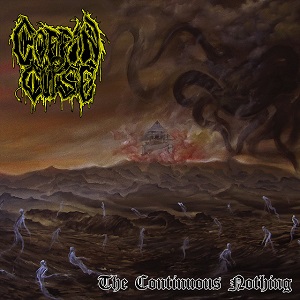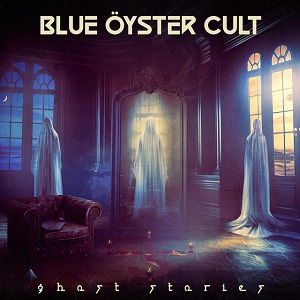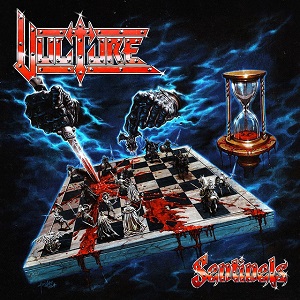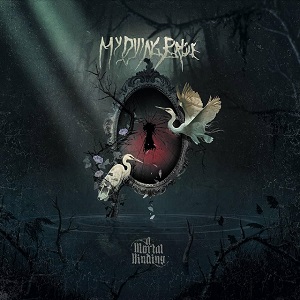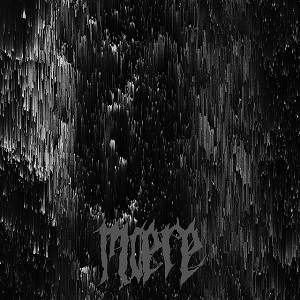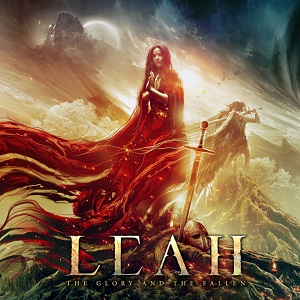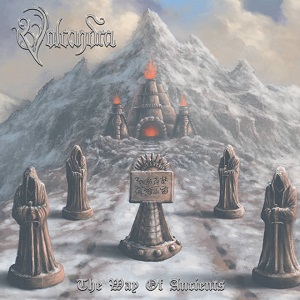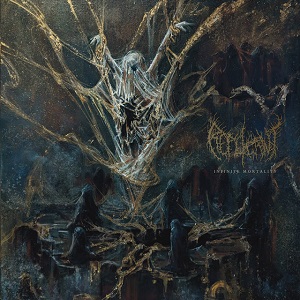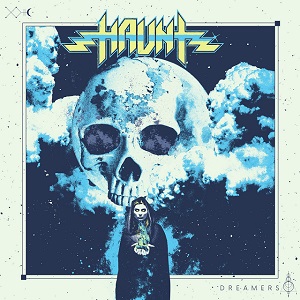RAVEN – Hell Ain’t A Bad Place To Be
August 2, 2023, 8 months ago
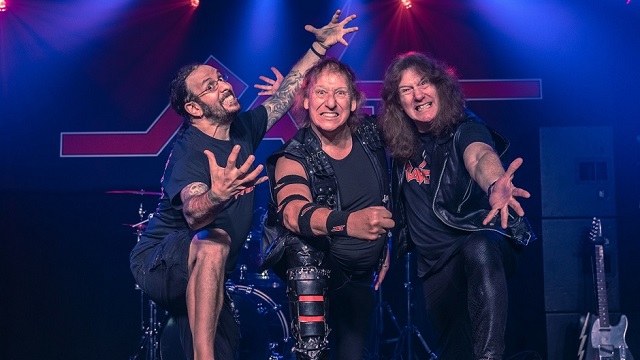
As the frontman for metal legends Raven, bassist / vocalist John Gallagher is one of metal's elder statesmen. He, along with his guitarist brother / co-founder Mark Gallagher, has seen and done it all since the band's 1974 inception, and they have no intention of slowing down any time soon. On the contrary, Raven's new album, All Hell's Breaking Loose, continues to narrow the gap between releases since their 2009 return following a construction accident that could have ended Mark Gallagher's, and the band's, career. It offers up everything one expects of the NWOBHM veterans and the era in general - it's fast, brazen and dirty - and although Raven is an acquired taste for some, John Gallagher is more than a little proud to be crushing skulls this late in the game, and happy people are still on board their rollercoaster.
"We know when we've got a good record, but it's nice to get validation," says Gallagher. "Absolutely. Probably over the past 10 or 15 years, we've been getting a lot of that 'I listened to you guys when I was a kid...' or 'You guys were a huge influence on our band.' That's really nice because we've been on that side of the fence, as it were, when we were talking to Jon Lord or Ian Paice (Deep Purple). Not that I'm putting myself up with those guys (laughs). Those guys were huge influences, so being able to tell them that was a very cool thing. Definitely."
Raven has been around for close to 50 years and are often cited as an influence by some major names in metal. As mentioned, Gallagher is proud of and grateful for the accolades, but says "we're very happy to (a) just be around, and (b) to be doing it better than we've ever done it."
"Everyone is surprised, of course, when you start looking at the figures. There was some chart on the internet that was sent to me by a friend, and it listed the longevity of bands; we were in the Top 6 or 7. It was like Aerosmith, The Rolling Stones and... us (laughs). That's quite humbling and sobering. We're also enjoying it more than we ever have, and that's obviously very good. But to your point, after Mark's accident in 2001 we had a good three years of absolutely nothing. When we finally got Walk Through Fire (2009), that was kind of like planting the flag in the sand and going 'Okay, this is where we start from.' We've reached the bar every time since. Being able to do that and just increase everything; made better records, increased our profile, done more shows. The big thing for us was getting Mike Heller (drums / Fear Factory) six years ago. That really kicked things up to a different level."

Gallagher feels Raven has a constant duty to live up to their five-decade legacy when they write new music.
"There's a standard we have to live up to, and a standard we have to beat. I can pick up and guitar, play anything, and say 'Okay, we're gonna build a song around that...' but no, come on, put a bit more thought into it. I could come up with something literally every time I pick up a guitar, but it's a case of taking the bits and pieces that I do come up with, sorting through them and figuring out which parts work together. Then I have to bash it off the guys and they add to it. That's our process. We've got to elevate it and be better than we were yesterday."
"One of the great things is seeing Iron Maiden increase in popularity over the past 15 to 20 years, to the point that they're bigger than ever. Do you know why? Because it's the rising tide that lifts all gods. It's good for music and it's good for metal. More power to them because that's what you want. You don't want the bands that are putting out half-assed watered-down albums because the whole scene gets tainted."
Even with that in mind, Gallagher says he didn't feel any real pressure going in to write All Hell's Breaking Loose. It was more a case of business as usual and knowing Raven is good at their job.
"A lot of that is kind of peripheral, in the back of my head," he says. "I have to be in a situation where I'm surrounded by guitars and I'm playing around with ideas. A little later on come the more craft end of it where I'm being vicious and saying 'This isn't good enough. We need something else.' We wrote a lot of songs for Metal City (2020), we wrote a lot of songs for this album, and some of them weren't good enough. There were others that could have been great, so we elevated them to the point that they became great. And there were others that there was no way they weren't going on the record because they kicked ass from the get-go."
"We had 10 songs, no longer than 40 minutes total, and we made sure they just beat you over the head. Nobody wants to hear an 80-minute metal album unless you want to come up with a concept that needs a narrative. This is why, back in the day, albums like Van Halen I or Montrose's first record, you played it, it kicked your ass, and you put it back on again. That was all part of the form because you couldn't be too long on a vinyl LP, but as soon as CDs came out with 83 minutes, the attitude was 'Let's fill it...' But if you don't have the material, don't do it. This new record, you can get your head around it and it makes sense because it's short and sweet."
"You also have to remember that back in the day, a 75-minute record was a huge artistic statement," Gallagher adds. "That was Tales From Topographic Oceans (Yes) and The Lamb Lies Down On Broadway (Genesis). You could handle that because there was a method to that madness. But just song after song, endlessly... nah."
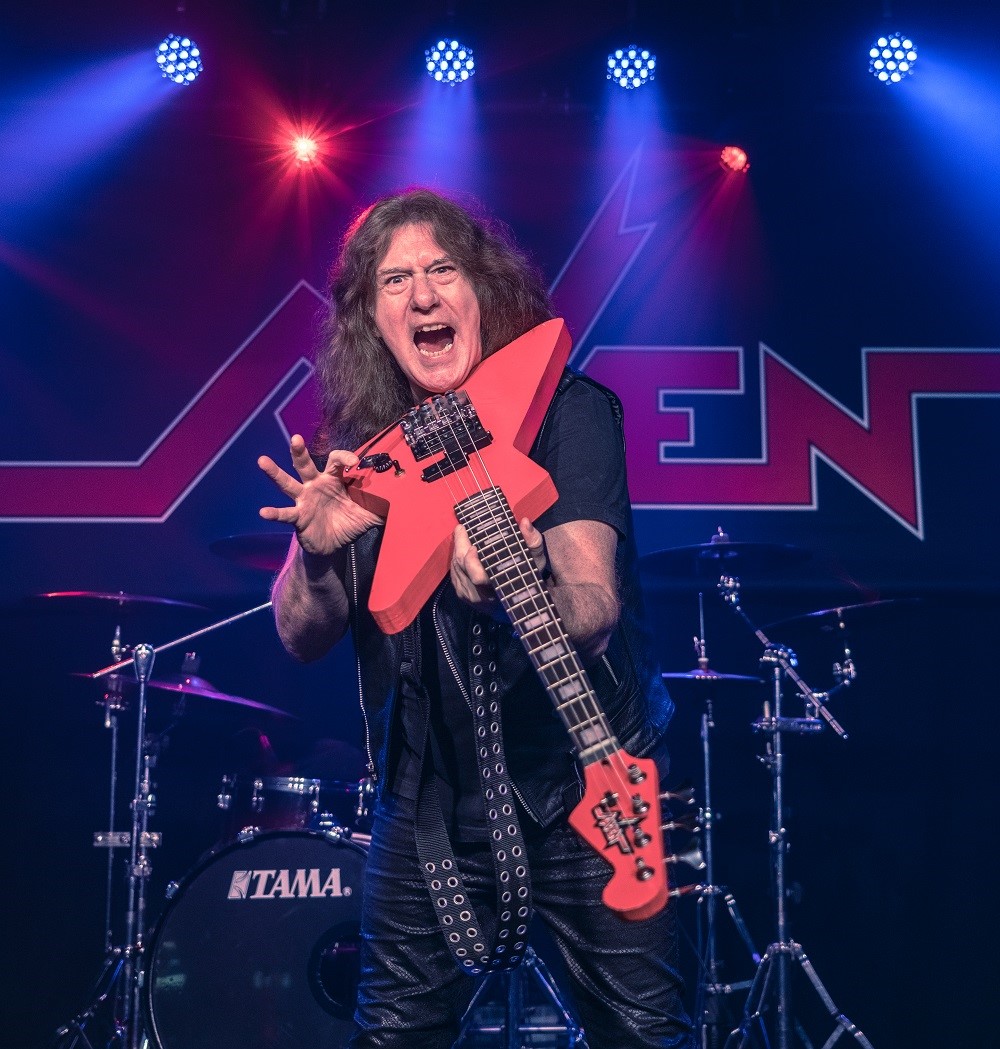
As mainstays of the metal scene, Raven has lived through the various changes in how fans consume music. With streaming effectively screwing any artist not at KISS or Metallica level with regards to having a solid income, Raven are one of those bands pushing to turn a profit from touring to supplement whatever they do make from physical albums sales. Financial wrangling is nothing new for Gallagher, and he doesn't bat an eye.
"You've got to factor in that when we were with Atlantic the budgets were, by decimal points, far higher," he offers. "But the amount that we got, by decimal points, was far lower. We were going out on tour with Judas Priest, but we were getting a per diem of $20 a day. There was no thought of the band getting paid because we were out promoting a record, meanwhile Joe Schmoe tuning my guitars was getting $500 a week. At some point we looked at each other and said, 'I don't think so...' (laughs). That coincided with all the other factors, like Raven not being thrash or glam metal, and then grunge slipping in there which killed everyone else. We made hay where we could, so we went to Europe and Japan, and by the mid-2000s things started to get better in the States. We've been around the block long enough to have seen this happen before; the music business is cyclical, so when it gets tough you've just got to hang in."
"Obviously, playing live is a key thing for bands these days. That's where they're going to make their money. We are a very good live band; always have been, always will be, so we have that ace card, which helps. From Day 1, we've always been a band that's done really well with merchandise. We've always had good, eye-popping stuff. That's always helped to carry us along.
These days we're actually in the T-shirt business rather than the album business (laughs). If you've got good stuff and you're selling it at a fair price, people will buy it."
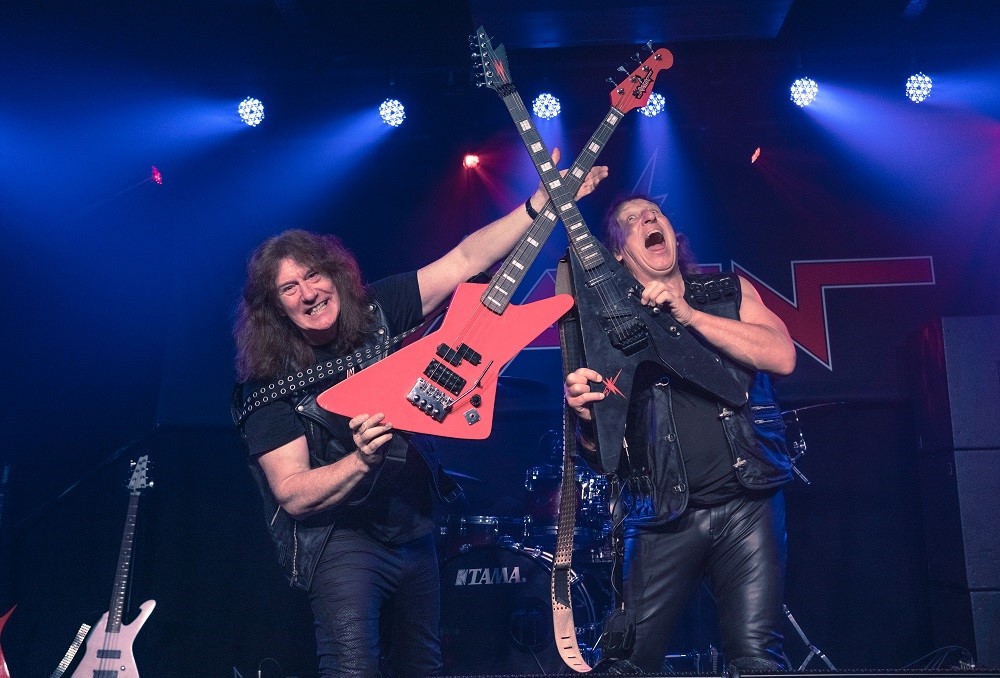
Raven has been a trio almost since their inception - which not only means more money to go around on payday - but in Gallagher's estimation made Raven the low-key juggernaut they are.
"We've always been a trio. That happened in late 1979 when we got Rob (Hunter) on drums and we fired the guy on second guitar (Paul Bowden) who had been with us for a couple of months. We decided to try it as a three piece and it was a very scary proposition, and within two minutes of playing in that formation we just looked at each other and realized we'd struck gold. It elevated by brother's playing by 1000% within a week. All of us had the room to do stuff, and he would do these crazy improvs here, there and everywhere. That format is key because we're not a band that will go out and reproduce the record exactly as it was recorded. There's always an element of danger and improvisation in what we do. We come from the days of Deep Purple and Emerson, Lake & Palmer, where they were just going off the rails. We lost Jeff Beck recently, and he was a master of improvisation. Every night would be totally different; he would play the same songs but it could have been a different guy playing. It was insane. That continues to be inspirational."
Of course, technology in 2023 allows for a "mere" trio to get away with filling any gaps in their sound on the live front. It comes back to the whole playback / laptop debate that has littered the press over the last couple years. Gallagher isn't one for delivering songs note-for-nuance during a live performance; for him it's about Raven delivering the best show they possibly can night after night using the tools at hand.
"My argument on this was always Queen. They were just the four guys right up until 1982, when they got Spike on keyboards. It was just the four of them playing live, with the exception of the 30 seconds of 'Bohemian Rhapsody' with the crazy vocals. It was obvious it was a tape; they weren't faking anything. They played everything: 'The Prophet's Song', they would do 'Killer Queen' and all these songs, and they would arrange them to play them live. And in many cases, they were better than the studio versions. Playing live is not about recreating what you did in the studio, and that's the challenge to go, 'Okay, we have four guitars on here, what am I going to play live?' You make it work."
(Photos – Jay Shredder)

